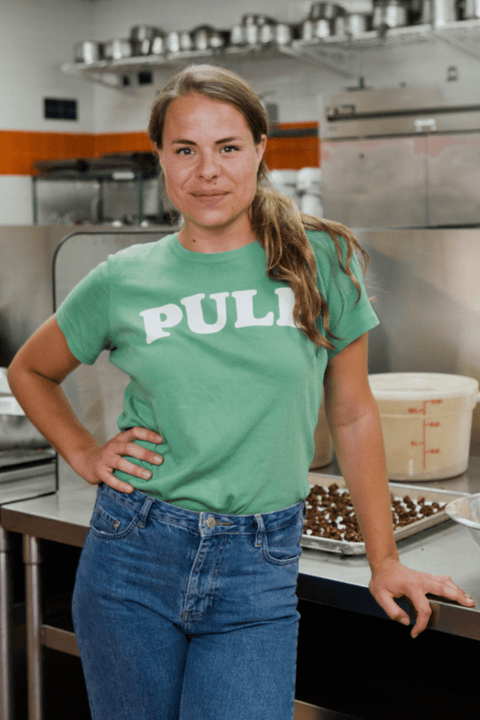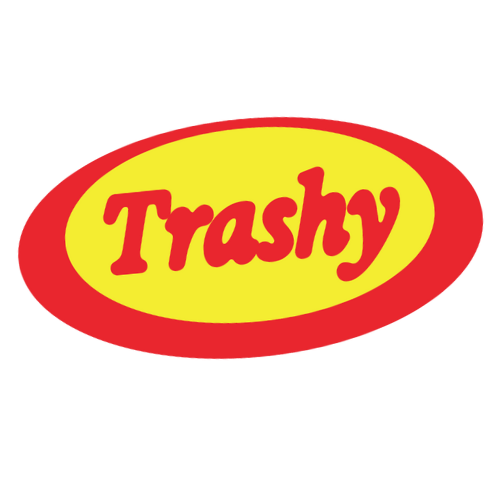
In honor of International Women’s History Month, we’re celebrating Women Owned with some of our favorite food and beverage founders!
Come learn about the unique challenges faced by female founders, and why you should be excited to find more female-founded food and beverage brands on shelf.
Why should we get more female founders in the grocery industry?
It’s simple: it means great business! According to a report by the Food Marketing Institute, women make the majority of household purchasing decisions, including grocery shopping. The report found that 70% of women were the primary shoppers for their households, and 85% of women reported being the primary decision-makers for household grocery shopping.
So could more women-owned brands mean better sales for the retailers carrying them?
A resounding yes!
Customers show a preference for women-owned certified brands in grocery. According to a survey conducted by the Women's Business Enterprise National Council, 90% of women consumers in the United States are more likely to buy products from women-owned businesses, and 80% are more likely to buy products from companies with women in leadership positions.
Additionally, a study conducted by the Female Founder Collective found that 70% of women consumers are more likely to buy from brands that actively support women!
What’s the state of women-owned in the grocery business today?
There has been an increase in women-owned brands in the food industry in recent years. According to a report by the National Association of Women Business Owners (NAWBO), women-owned businesses account for 42% of all businesses in the food, beverage, and hospitality industries. Additionally, a study by the National Women's Business Council found that the number of women-owned food and beverage businesses increased by 20% between 2007 and 2018.
There has also been an increase in women-owned certified brands. Many organizations offer certifications to women-owned businesses, including the Women's Business Enterprise National Council (WBENC), which is the largest certifier of women-owned businesses in the United States. According to the WBENC, there are over 16,000 certified women-owned businesses in the food and beverage industry alone. Additionally, some retailers, such as Whole Foods, have created initiatives to support and highlight women-owned brands in their stores. A few of our interviewees quoted below have been beneficiaries of such programs - which have dramatically increased sales in stores by highlighting female founders.
And last, female shoppers tend to prioritize shopping from brands that are bettering personal, family, community and planetary health.
The top purchasing preferences of women between the ages of 25-54 who represent the head of household grocery buyers include:
- Fresh and healthy foods: Many women in this demographic prioritize buying fresh and healthy foods, including fruits, vegetables, lean meats, and whole grains.
- Convenient foods: With busy schedules and many demands on their time, many women in this demographic also look for convenient food options such as pre-cut fruits and vegetables, pre-made meals, and snack foods.
- Organic and natural foods: According to a survey by the Organic Trade Association, women in this demographic are more likely to buy organic and natural foods than other demographic groups.
- Brand loyalty: Many women in this demographic have strong brand loyalty and may consistently purchase products from their favorite brands.
- Environmentally-friendly products: Women in this demographic may also prioritize buying environmentally-friendly products, such as reusable bags, eco-friendly cleaning products, and organic and locally-sourced foods.
Are you ready to support more women-owned brands in grocery? Or curious to start your own food or beverage company?
Below are the most commonly asked questions about female founders or starting a business as a woman. We asked some of our favorite female founders to weigh in on their take.
- What are some unique challenges that you faced when starting a business?
“Everything! Kidding aside, I’ve adjusted to the mantra of ‘2 steps forward and 1 step back’. You are going to make mistakes and have challenges, you just need to learn from them so you can move forward.”
- Laurel Orley, Co-Founder & CEO, Daily Crunch
Managing inventory, forecasting, and finding the capital to make it all happen! Each stage of growth has pains. Everyone thinks the bigger you get, the easier it becomes. But the decisions get bigger too. Running out of stock has been one of our greatest challenges, but now we've got it down!
- Ashley Nickelsen, Founder, CEO, and Chief Snack Officer, B.T.R. NATION
“As an entrepreneur, I'm passionate about thinking big. However, to make progress, we often need to seek others' services. It's not easy to capture people's attention when we're still in the idea stage, without any proof of concept or sales. That's why we rely on our friends and ask for favors to get ahead.”
- Tal Garden FUN Sesames
"I bootstrapped the business for two years by freelancing full time, and then slowly decreasing my freelance workload as Lil Bucks took off. It offered flexibility but I will say, I didn't have a ton of boundaries around my freelance work at the time, and there was a year where I was working two full time jobs at once, it was not fun and I went through burnout.
Since then I've raised from Friends and Family, and Angel Investors, through convertible notes. I worked with a startup lawyer that worked with a friend's tech company to help with the paperwork. I was completely clueless on how to structure fundraising rounds, so use your network to find someone who knows it. There's no shame in not knowing. Honestly, to this day I have to *teach* investors (primarily all males) how the fundraising structure actually works. It's wild to think I went from being clueless to having to coach investors on how fundraising rounds are structured hah!
We also did a crowdfunding campaign on Republic, which offers anyone the opportunity to invest without being an accredited investor. This basically democratizes fundraising because it gives people that don't normally have the opportunity to invest and potentially make it big on very early companies because they are not yet accredited investors. Crowdfunding was an epic option for a woman-owned business, because to this day I still have a hard time with traditional VC/venture firms -- less than 2% of VC money goes to women, so the odds are tough in what is already the most difficult part of the job, fundraising.
Last option I wish I explored earlier on was non-dilutive capital, so working with a bank or loan company specific to your industry on gaining a loan for working capital to help us take off.
TL;DR: For women, I think angels, friends & family and crowdfunding investors are a great route because these people are way more likely to actually write checks. Fundraising is a very difficult challenge so doing anything you can to maximize your odds will help.”
- Emily Griffith, Founder & CEO Lil Bucks, America's Buckwheat Brand
“Start out with as much grant funding as you can grab! The further along you get through building clear traction and data around your product’s sales, the better you’ll be able to negotiate for investment without diluting your ownership in the business… and of course, the better you’ll be able to de-risk your enterprise for investors! The best places to look are: accelerators or incubators (my favorite programs have been run by retailers or partners directly involved in my business), local university programs, as well as SBA / local Small Business Development Center programs. Make sure to network with local angel groups as well.”
- Kaitlin Mogentale, founder & CEO, Pulp Pantry
Learn how to create a good deck by reaching out to people who you know do this well, apply for grants targeting women-owned businesses, keep financials organized and have clear projections and clear path of getting there.
- Regina Trillo, Founder and CEO Nemi Snacks
“My other mantra is the squeaky wheel gets what they want. Don’t be afraid to follow-up a lot with people. We are all busy and if you don’t market yourself via linkedin, newsletters, etc then people will forget. A fellow female entrepreneur just secured $1.5MM by doing a raise on International Women’s Day. She invited local investors and had a party and closed the raise in 8 hours. Lesson learned? You need to think outside the box and take risks.”
- Laurel Orley, Co-Founder & CEO, Daily Crunch
“In 2022, less than 2% of women owned businesses received venture funding. The cold hard truth is that women owned businesses have to prove more to receive capital. It's not enough to have a good idea. Women owned businesses have to show greater traction, they need to have a full understanding of their #'s, how long it's going to take to get profitable, etc. What's the long-term vision, and what makes you in the top 1% of businesses to stand out and help your investors get a return on their capital. “
- Ashley Nickelsen, Founder, CEO, and Chief Snack Officer, B.T.R. NATION
"Seek out female-focused funding sources: Some venture capital firms and angel investor groups specifically focus on funding women-led businesses. Research and pitch your business to these types of organizations.
Build a network: Networking is crucial for entrepreneurs to establish relationships with potential investors, partners, and mentors. Attend events and join groups that are relevant to your industry to expand your network."
- Tal Garden, FUN Sesames
3. Are there any resources or networks specifically for female entrepreneurs?
“ The Female Founder Collective is great and Entreprenistas is a wonderful resource.”
- Laurel Orley, Co-Founder & CEO, Daily Crunch
“I surround myself with female founders constantly! In addition to connecting with my female founder friends almost daily, I'm a part of several organizations that I highly recommend: the Enthuse Foundation, Women Founders Network, and the Entreprenista League.”
- Ashley Nickelsen, Founder, CEO, and Chief Snack Officer, B.T.R. NATION
“Several grants such as Ladies Who Launch, Enthuse Foundation, Hello Alice grants for female and BICOP-owned businesses.”
- Regina Trillo, Founder and CEO Nemi Snacks
4. What are some examples of successful female-founded businesses?
“So many!! All the ones in this post! Ty Haney from Outdoor Voices, and former Haus founder Price Hambrecht, are great female entrepreneurs. What stands out to me with both of their stories is how vulnerable and honest they have been about their business journeys, even when things didn't look perfect from the outside. As entrepreneurs you face pressure to seem like "everything is amazing!!!", after all you want your employees, buyers, investors, customers etc. to be confident in your product/business. But I think women founders especially have changed the game in terms of, yes, you can be confident and SHOULD blast all the amazing things going on with your business for those stakeholders, but you can ALSO be vulnerable and real about the journey. You're not doing yourself any favors by blocking yourself off from vulnerability and connection--my community, more often than not, has helped lift my business from difficult challenges.”
- Emily Griffith, Founder & CEO Lil Bucks, America's Buckwheat Brand
Pulp Pantry, Amazi, BTR Nation, Lil' Bucks, Partake, AYO Foods, Agua Bonita, TUYYO, Daily Crunch, Fun Sesames, Anvana House, Maspanadas, Brazi Bites, Nopalera, Mush, Kuli Kuli, Kara Goldin, Jaime Schmidt.
- Regina Trillo, Founder and CEO Nemi Snacks
In addition, to the AMAZING women here, I'm inspired daily by Kara Goldin of Hint Water, Ali Webb of Dry Bar, Candace Nelson of Sprinkles, Sandra Velasquez of Nopalera, Adriana Carrig of Little Words Project, and Nadya Okamoto of August to name a few :)
- Ashley Nickelsen, Founder, CEO, and Chief Snack Officer, B.T.R. NATION
“Jing from Fly Bu Jing tells her story, keeps it real and lets the haters hate with zero shame. I’ve followed her the past 3 years and her product is killer and her branding is on par but she’s also a great female founder leading the way”
- Laurel Orley, Co-Founder & CEO, Daily Crunch
5. How can women balance starting and growing a business with other responsibilities, such as family or other work?
“Love this question! As a mom of a now 9-month old, it's not easy, and some days are very messy, but you make it happen. Having a child has made me a better entrepreneur. My priorities have become crystal clear. My why has increased tenfold. Things that don't serve me or serve the business (like mindless scrolling) simply become unimportant. I recommend doing what works best for you, but I find that sharing about my life and journey has only helped our community grow closer to us.”
- Ashley Nickelsen, Founder, CEO, and Chief Snack Officer, B.T.R. NATION
"Having the support of close family is crucial. It may be impossible or not worthwhile to run and grow a business without their support.
“Working around the clock requires everyone to be flexible, for the husband to come home early when needed, even ask for advance notice of his work-related travel. Things like Calling the neighbors to check on the dogs while stuck in traffic. Or even asking the Grandparents to pick up kids and driving them to their activities. It really takes a village. and the more you will be ok to receive help and know you are loved and deserve it the better."
- Tal Garden, FUN Sesames
“It's an everyday challenge. I stay away from the word balance and instead prioritize the top 3 items of the day. I prioritize on weekly basis according to quarterly goals.”
- Regina Trillo, Founder and CEO Nemi Snacks
“It’s hard and we have to be kinder and easier on each other. I have 3 kids and I asked them recently if I should quit and they say please don't quit. They are watching on the side lines.”
- Laurel Orley, Co-Founder & CEO, Daily Crunch
6. What are some tips for building a strong brand as a female founder?
“Share your story consistently and authentically through all your communication channels. Leverage connections with your community/customers, they can help you if you ask them to.”
- Regina Trillo, Founder and CEO Nemi Snacks
“Don't be afraid to be vulnerable. Your story and your why is your superpower. Don't hide it to be like everyone else. Lean into it and share it everywhere with everyone all the time until it sticks.”
- Ashley Nickelsen, Founder, CEO, and Chief Snack Officer, B.T.R. NATION
“Join female founder groups and build a community together.”
- Laurel Orley, Co-Founder & CEO, Daily Crunch
7. How can women overcome imposter syndrome and gain confidence in their abilities as entrepreneurs?
“I would suggest investing in killer branding, packaging as soon as you’re clear on your direction and value to customers. Start out with initial testing at Farmers Markets or local events where you can sell products - or selling on social media! Gather as much feedback as possible. Take your customer feedback and turn it into the brand hierarchy, or how you’ll communicate the brand value to your community. With killer branding, killer communication, and a clear value proposition, it’s amazing how far you can get.”
- Kaitlin Mogentale, founder & CEO, Pulp Pantry
“Find a daily mantra that works for you. Go for a walk to clear your head and get that negative voice out of your head. Talk to your fellow female founders. Everyone's going through something. Getting it out in the open can actually help you crush imposter syndrome and gain more confidence.”
- Ashley Nickelsen, Founder, CEO, and Chief Snack Officer, B.T.R. NATION
“Repeat to yourself, every single day, you deserve to be where you are, you are worthy of success and learn as much as you can with the time and resources you have.”
- Regina Trillo, Founder and CEO Nemi Snacks
“Join a forum with other women.”
- Laurel Orley, Co-Founder & CEO, Daily Crunch
8. How can women network effectively and build connections in the business world?
“My number one tip is to shoot your shot! The worst thing that can happen, is that you get a "no" or no response, and you're no worse off than where you started. All connections I've made have been through showing up and asking questions - whether simply through LinkedIn messaging, or utilizing existing friends and contacts to better understand the overall network and potential connections in the broader industry. From our suppliers to some of my favorite fellow founders, all have been made through direct outreach and questions! Don't hesitate to reach out.”
- Renee Dunn, Founder & CEO, Amäzi
“Go to events and share your story. Also, exercise patience! It takes time. Conferences like the WBENC conference are great for meeting so many new people.”
- Laurel Orley, Co-Founder & CEO, Daily Crunch
“We support each other as we rise and connecting with each other, having open and vulnerable conversations about our struggles, showing up authentically and asking other women to share connections with you will go a long way.”
- Regina Trillo, Founder and CEO Nemi Snacks
“Find social media platforms that align with your values and ones where you can engage easily. I do a lot of networking on Instagram and LinkedIn, even on TikTok. Foster connections virtually, but then take it in person. Attend events in your community, go to trade shows, ask founders in your region to meet up for coffee and to discuss collabs. This is a great way to share resources and make some of your best friends in the industry!”
- Ashley Nickelsen, Founder, CEO, and Chief Snack Officer, B.T.R. NATION
“Network is your net worth! Say YES to a ton of opportunities, and don’t be shy to ask folks in your local community and industry about the resources and groups they tend to network with. You never know who you’ll meet. Craft your 30-second pitch and come to each event ready with your burning “asks”. I’ve especially valued the connections with other founders who have been able to point me to countless resources I wouldn’t have known about otherwise. That includes grant funding opportunities!”
- Kaitlin Mogentale, founder & CEO, Pulp Pantry
9. What are some strategies for managing the unique challenges and stressors that come with starting and running a business as a woman?
“Surround yourselves with female founders who are few steps ahead of you in your business. They've seen it all and heard it all. Processing your stress and challenges in a safe space with someone who understands is a great strategy to help you succeed in your business.”
- Ashley Nickelsen, Founder, CEO, and Chief Snack Officer, B.T.R. NATION
“I am a huge proponent of viewing your business as a greater part of your life, as opposed to business being everything. That framing has helped me loosen the reins a bit, and it also has allowed for unexpected opportunities - you never know what's going to pop up, and when we get tunnel visioned or overly stressed around the business itself, it's hard to see what else is out there. Whenever it feels like I'm gripping too hard or the business is taking over, I take a step back and try to frame it more broadly in terms of my values, and overall goals, as opposed to one particular piece of the puzzle. Beyond that, I try to create space through daily practices of movement (I personally love lifting, yoga, and hiking!), getting outside daily, meditation, journaling, and therapy have all been key in my journey.”
- Renee Dunn, Founder & CEO, Amäzi
“Having a self-care practice before you start the business.”
- Regina Trillo, Founder and CEO Nemi Snacks
“Mental health is real and is our give back mission. It’s important to take time for ourselves when starting a business and having a life outside of our company which is sometimes really hard to do.”
- Laurel Orley, Co-Founder & CEO, Daily Crunch
Have any follow up questions? Feel free to reach out directly. We hope this article was helpful for your own personal journey.
Happy International Women’s History Month :)





